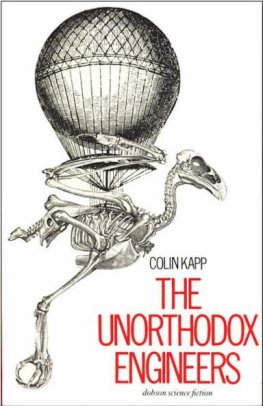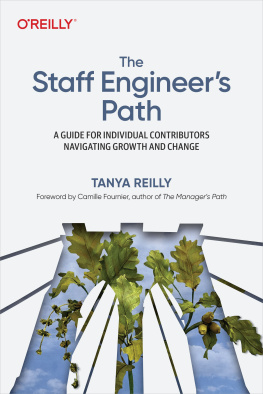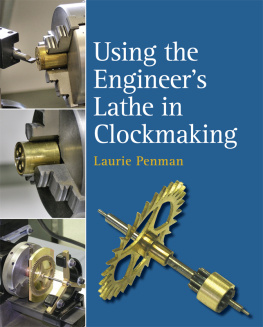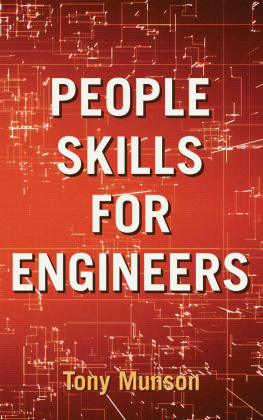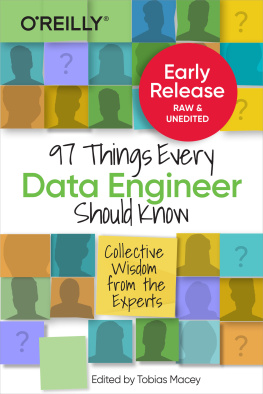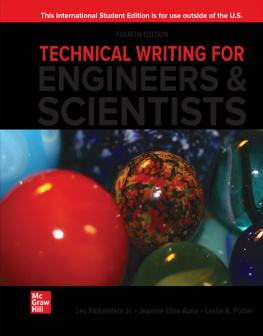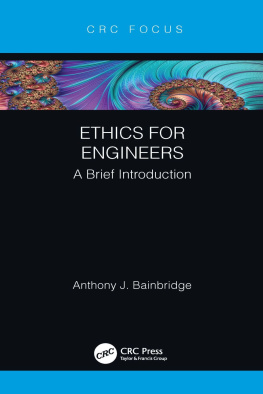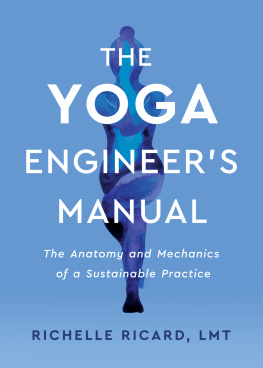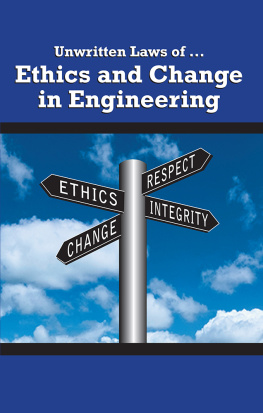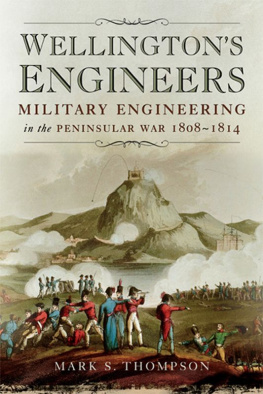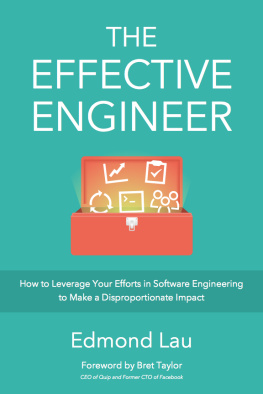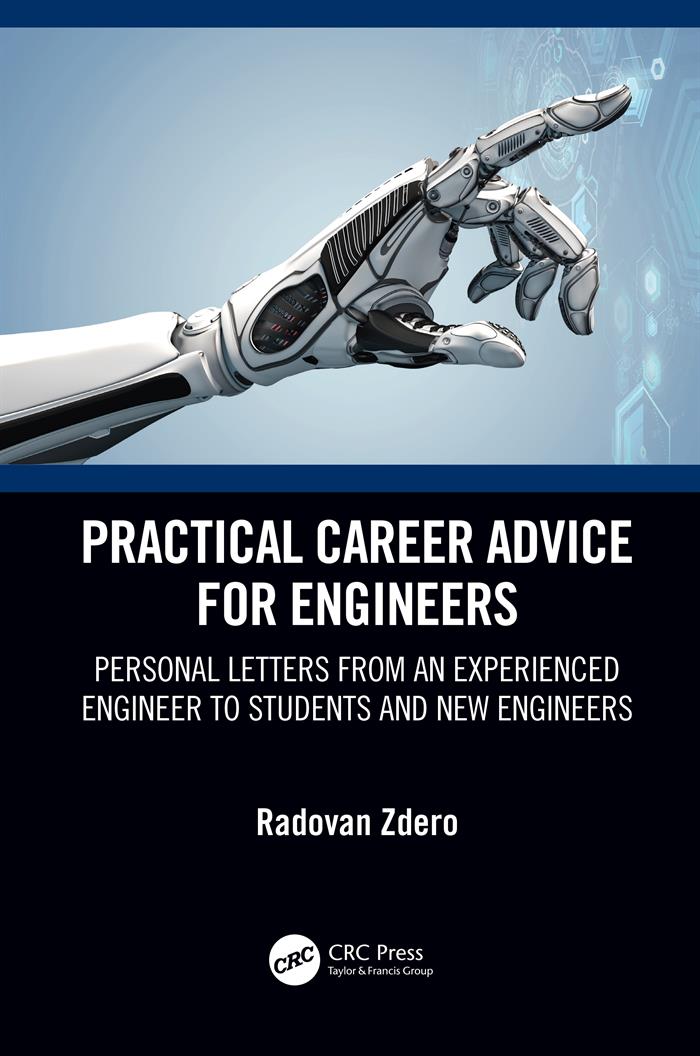
Practical Career Advice for Engineers
Practical Career Advice for Engineers
Personal Letters from an Experienced Engineer to Students and New Engineers
Radovan Zdero

First edition published 2022
by CRC Press
6000 Broken Sound Parkway NW, Suite 300, Boca Raton, FL 33487-2742
and by CRC Press
2 Park Square, Milton Park, Abingdon, Oxon, OX14 4RN
2022 Radovan Zdero
CRC Press is an imprint of Taylor & Francis Group, LLC
Reasonable efforts have been made to publish reliable data and information, but the author and publisher cannot assume responsibility for the validity of all materials or the consequences of their use. The authors and publishers have attempted to trace the copyright holders of all material reproduced in this publication and apologize to copyright holders if permission to publish in this form has not been obtained. If any copyright material has not been acknowledged please write and let us know so we may rectify in any future reprint.
Except as permitted under U.S. Copyright Law, no part of this book may be reprinted, reproduced, transmitted, or utilized in any form by any electronic, mechanical, or other means, now known or hereafter invented, including photocopying, microfilming, and recording, or in any information storage or retrieval system, without written permission from the publishers.
For permission to photocopy or use material electronically from this work, access
Trademark notice: Product or corporate names may be trademarks or registered trademarks and are used only for identification and explanation without intent to infringe.
Library of Congress Cataloging-in-Publication Data
Names: Zdero, Radovan, author.
Title: Practical career advice for engineers / Radovan Zdero.
Description: First edition. | Boca Raton, FL : CRC Press, 2022. | Includes bibliographical references and index.
Identifiers: LCCN 2021011469 (print) | LCCN 2021011470 (ebook) | ISBN 9781032044132 (hbk) | ISBN 9781032044118 (pbk) | ISBN 9781003193081 (ebk)
Subjects: LCSH: EngineeringVocational guidance.
Classification: LCC TA157 .Z43 2022 (print) | LCC TA157 (ebook) | DDC 620.0023dc23
LC record available at https://lccn.loc.gov/2021011469
LC ebook record available at https://lccn.loc.gov/2021011470
ISBN: 978-1-032-04413-2 (hbk)
ISBN: 978-1-032-04411-8 (pbk)
ISBN: 978-1-003-19308-1 (ebk)
DOI: 10.1201/9781003193081
Typeset in Times
by MPS Limited, Dehradun
The progressive development of man is vitally dependent on invention. It is the most important product of his creative brain. Its ultimate purpose is the complete mastery of mind over the material world, the harnessing of the forces of nature to human needs.
Nikola Tesla (18561943)
Electro-Mechanical Engineer
My Inventions: The Autobiography of Nikola Tesla
Contents
I would like to extend a huge thanks to the entire team at CRC Press for all of their wonderful assistance in bringing this book into being. I appreciate the valuable input and feedback on various portions of the book from my engineering colleagues and other friends: Mr. Aaron Gee; Mr. Aleksandar Djuricic; Dr. Aleksandar Jeremic; Mr. Alex Matheson; Ms. Amy Posch; Mr. Bruce Nicayenzi; Mr. Eric Velasquez; Mr. Geoff Leung; Dr. Habiba Bougherara; Dr. Jelica Zdero; Dr. Mark-John Bruwer; Dr. Shaghayegh Bagheri; and Mr. Suraj Shah. I want to also mention several fine folks who have mentored me in my engineering career: Dr. zden F. Turan; Dr. J. Timothy Bryant; and Dr. Emil H. Schemitsch. I want to express my immense gratitude to my family and friends who support me in many ways and with whom I experience this thing called life. I especially cannot overstate the debt I owe to my dear parents Obrad and Ana Zdero (a.k.a. ) who taught me valuable lessons about character and competence. Finally, Id like to recognize the Grand Designer who engineered the cosmos.
Radovan Zdero, PhD, CEng, MIMechE, has decades of experience as an engineer and a mentor to engineers. His engineering background includes a masters degree in aerodynamics (McMaster University, Canada) and a doctoral degree in biomechanics (Queens University, Canada). He is a Chartered Engineer, a Member of the Institution of Mechanical Engineers, and a Professor in the Division of Orthopaedic Surgery and the Department of Mechanical and Materials Engineering (Western University, Canada). He has published many scholarly research articles in peer-reviewed engineering, science, and medical journals. He is also the editor of the engineering textbook Experimental Methods in Orthopaedic Biomechanics. Contact the author: .
Im a professor and senior researcher in mechanical engineering with a specialty in biomechanics, biodevices, and biomaterials. Some people would call me a biomedical engineer. Either way, I think Id be equally happy being an engineer who designs, builds, and fixes robots, bridges, or spaceships. But, where did this interest in engineering come from? As I look back, I can see the early roots of this passion in my familys influence (i.e. nurture) and my own personality (i.e. nature).
My grandfather was an illiterate peasant farmer in a European village who had a knack for therapeutically massaging and manipulating the painful, sprained, bruised, or broken limbs and joints of other farmers who were injured during work. This is one of my earliest memories in life. My parents were also mechanically inclined. Father was a peasant farmer, factory laborer, and master carpenter, while mother was an expert seamstress also skilled at baking, cooking, crocheting, embroidering, and knitting.
When I was a very young kid, I often disobeyed my parents by sneaking into the tool shed to play with all those interesting tools. For me, playing meant hammering nails into the wooden floor, pushing manual lawnmowers around, and taking out the car jack to lift up the back of my fathers car. I sustained at least one injury that remains visible to this day.
Later on, when I was a student in high school, I really enjoyed and excelled in my courses in mechanical drawing, mathematics, and chemistry, but I also liked my courses in physics, biology, and computers. My chemistry teacher used to leave the classroom door unlocked, so my friend and I could come in by ourselves after school hours to do chemistry experimentsunsupervised! Its lucky we didnt blow up ourselves or the school! I even thought about becoming an architect or a chemist.
And so, when it was time for me to apply to university, I wasnt necessarily sure that engineering was for me. I didnt know who to talk to. I didnt know what to read. I didnt know where to visit. I truly wish I would have had a resource to answer my questions about what an education, and later a career, in engineering was really like. This would have saved me time and stress in making my career decisions.
Over the decades, Ive met many people in the same situation I was in who have many of the same questions, such as: high school students wondering whether they should enroll in engineering at university; engineering students pondering whether to get an industry position after graduation or do a masters or doctoral degree; masters and doctoral students in engineering dealing with concerns about applying for jobs in university, industry, or government; and engineers already in the workforce trying to figure out the daily ethical, financial, interpersonal, and technological challenges they face.
Next page

